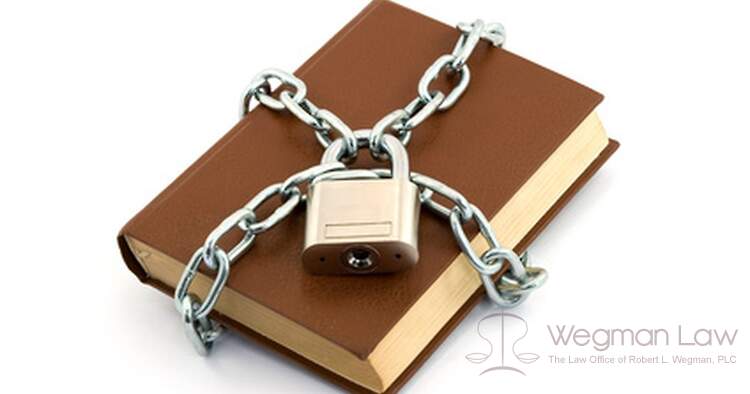§ 4.1-305, § 18.2-96, § 18.2-103, § 18.2-119, § 18.2-120, or § 18.2-134; a misdemeanor violation of § 18.2-248.1; or § 18.2-250.1 or § 18.2-415.
If Federal law prohibits DMV from sealing a record, DMV is not required to do so under 19.2-392.13.
Automatic sealing under §19.2-392.6(B) requires that seven years have passed since the date of the dismissal or conviction and the person charged with or convicted of such offense has not been convicted of an offense reportable to the CCRE, excluding traffic infractions under Title 46.2, during that time period. Automatic sealing under (A) is not available if, on the date of the deferral or dismissal, the person was convicted of another offense that is not eligible for automatic sealing under subsection A or B.
No conviction listed under subsection B shall be automatically sealed if, on the date of the conviction, the person was convicted of another offense that is not eligible for automatic sealing under subsection A or B.
The process, which takes place on at least a monthly basis, is established by §19.2-392.7.
In short, the Virginia State Police reviews CCRE for eligible offenses. Next, the Virginia State Police sends list to OES and Circuit Court Clerks. The OES then sends a list to Circuit Court Clerks. Thereupon, the Chief Judge of Circuit Court enters an order. The Circuit Court Clerk then sends the order to the VSP, and the VSP notifies other agencies and seals records.
Automatic Sealing of Acquittal/NP/Dismissal
Under §19.2-392.8, there is automatic sealing of offenses resulting in acquittal, nolle prosequi, or dismissal. If a person is charged with the commission of a misdemeanor offense, excluding traffic infractions under Title 46.2, and (i) the person is acquitted, (ii) a nolle prosequi is entered, or (iii) the charge is otherwise dismissed, excluding any charge that is deferred and dismissed after a finding of facts sufficient to justify a finding of guilt, the court disposing of the matter shall, at the time the acquittal, nolle prosequi, or dismissal is entered, order that the charge be automatically sealed.
Under §19.2-392.8, a party may object and stop automatic sealing at the time, if:
1. The charge is ancillary to another charge that resulted in a conviction or a finding of facts sufficient to justify a finding of guilt;
2. A nolle prosequi is entered or the charge is dismissed as part of a plea agreement;
3. Another charge arising out of the same facts and circumstances is pending against the person;
4. The Commonwealth intends to reinstitute the charge or any other charge arising out of the same facts and circumstances within three months;
5. Good cause exists, as established by the Commonwealth by a preponderance of the evidence, that such charge should not be automatically sealed; or
6. The person charged with the offense objects to such automatic sealing.

